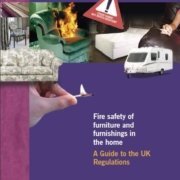Calls for Government rethink on holiday letting tax change. A GOVERNMENT tax change that could cause the closure of holiday lettings, an increase in second homes and cost the county’s economy an estimated £5 million has been slammed by tourism promoters, owners of holiday homes and MPs.
The Government announced in the last Budget that it was proposing changes to the tax laws related to furnished holiday lettings, which, if they were passed would become effective in 2010.
The changes would see owners of holiday homes no longer being able to claim tax back on furniture they buy to decorate their lettings. They would also be unable to offset losses against other income, and capital gains tax relief would also be scrapped.
Tim Farron, MP for Westmorland and Lonsdale, has joined 63 other MPs in signing an early day motion against the Treasury’s changes. He believes the changes could damage South Lakeland’s tourism economy and lead to an increase in the number of second homes in the Lake District.
“These changes would make it more expensive for people who run holiday lettings,” said Mr Farron. “People would just have to sell them and they would become second homes. We would lose properties that are currently bringing in an income. It would be a loss to the economy and the community.
“The Lake District has an all year round holiday season so the local shops, pubs and post offices are being used by the visitors staying in the holiday homes. Second homes are used perhaps ten weeks a year, so the benefits to the community are far less, it would cost our area possibly £5 million,” he said.
Tony Sawyer, 76, owns four holiday apartments as part of a barn conversion in the Mallerstang valley. He wants the Government to reconsider the change as he believes it is unfair of the Government to ask for higher accomodation standards while taking away the tax benefit.
“It is a business as far as I am concerned, I supplement my pension with it,” he said. “The Government, through its tourism bodies, like Visit Britain, is constantly putting pressure on us to raise standards.
“In the last three years I have spent £50,000 on this, replacing doors, windows and upgrading furniture to improve the visitor experience. It is grossly unfair.”
Mr Sawyer is backing calls by holiday agents Holiday Cottages Group for the Government to scrap the scheme.
“This policy is ill thought out and penalises the wrong people,” said Geoff Cowley, managing director of Holiday Cottages Group. “It’s not the large absentee second home owners, who may have been the Government’s target, that will be affected but the individual owners of successful small letting businesses and rural communities whose income is largely dependent on them.”
Ian Stephens, chief executive of Cumbria Tourism, which promotes tourism in the county, said the organisation stood ‘shoulder to shoulder’ with Mr Farron and the Holiday Cottages Group on this issue.
“We think this is unfair and damaging to the tourism industry,” he said. “Holiday lettings businesses are vital to the rural economy here and this has the potential to threaten jobs and local enterprise.
“The blanket approach of the policy seems to penalise genuine businesses operating within the industry and could possibly encourage more dormant second homes being created as owners take their properties off the visitor market or decide to sell them.
“It also creates a disincentive to invest in improvements which are vitally important for customer satisfaction and influencing repeat visits.
It would also be counter to the Government’s tourism strategy, which wants improvements in the quality of accomodation and more jobs created in rural areas.”





